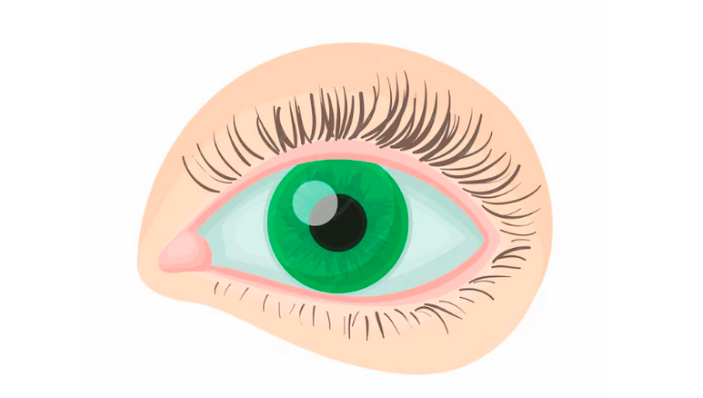LASIK surgery in Gurgaon and cataract surgery are both common procedures used to correct vision problems. LASIK, also known as Laser-Assisted in Situ Keratomileusis, is a popular refractive surgery aimed at improving vision by reshaping the cornea. On the other hand, cataract surgery is about removing the cloudy lens from the person and then replacing it with a clear artificial lens.
But what if you have cataracts and are considering LASIK surgery to correct your vision? Is it a viable option? Let’s delve into this topic and explore the factors to take into consideration when faced with this decision.

What Is LASIK Surgery?
LASIK eye treatment in Gurugram and LASIK surgery in Gurgaon are procedures aimed at addressing prevalent vision issues like nearsightedness, farsightedness, and astigmatism. In LASIK surgery, highly precise laser technology remodels the cornea, enhancing the way light is focused onto the retina. This results in diminished reliance on glasses or contact lenses for clear vision. These procedures are widely performed in Gurugram and Gurgaon by experienced eye surgeons, offering patients the opportunity for clear vision and enhanced quality of life.
LASIK is known for its quick recovery time and immediate vision improvement, making it a preferred option for many individuals seeking vision correction. However, it’s essential to consult with an experienced eye surgeon to determine if LASIK is suitable for your vision needs and eye health specifically.
What Is Cataract Surgery?
Cataract surgery is a commonly performed procedure aimed at treating cataracts, which cause cloudiness in the eye’s natural lens, resulting in blurred vision and other visual impairments. During the surgery, the cloudy lens is always removed and then successfully replaced with an artificial lens known as an Intraocular lens. Typically conducted on an outpatient basis, cataract surgery involves making a very small incision in the eye to fragment and remove the cloudy lens using ultrasound technology. Following the removal of the cataract, the IOL is implanted to restore clear vision. Renowned for its safety and effectiveness, cataract surgery leads to improved vision and a significant reduction in visual symptoms for the majority of patients.
Understanding LASIK And Cataracts
LASIK surgery is primarily performed to correct refractive errors such as nearsightedness, farsightedness, and astigmatism by reshaping the cornea. It is not intended to address cataracts, which develop when the eye’s lens becomes cloudy, causing blurred vision and visual disruptions.
Conversely, cataract surgery entails the removal of the cloudy lens and substitution with an artificial intraocular lens (IOL) to reinstate clear vision. While cataract surgery effectively addresses the cloudiness caused by cataracts, it may not correct other refractive errors like nearsightedness or astigmatism.
Considering LASIK With Cataracts
If you have cataracts and are looking forward to LASIK surgery to correct refractive errors, there are several factors to consider:
- Severity of Cataracts: The decision to undergo LASIK surgery with cataracts depends on the severity of your cataracts. If your cataracts are mild and not significantly affecting your vision, LASIK may be an option. However, if your cataracts are advanced and causing significant visual impairment, cataract surgery may be necessary.
- Stability of Vision: LASIK surgery is most effective when your vision has stabilized. If your cataracts are causing fluctuations in your vision, it may not be the ideal time to undergo LASIK. In such cases, it’s essential to address the cataracts first to achieve stable vision before considering LASIK.
- Comprehensive Eye Evaluation: Before making any decisions, it’s crucial to undergo a comprehensive eye evaluation by an experienced ophthalmologist. They can assess your overall eye health, the severity of your cataracts, and the presence of any other eye conditions that may affect the outcome of LASIK surgery.
- Expectations and Goals: Discuss your thoughts and goals with your eye care provider. LASIK surgery can provide excellent results in correcting refractive errors, but it may not be very suitable for everyone, especially those with underlying eye conditions like cataracts.
In conclusion, while LASIK surgery can effectively correct refractive errors, it may not be suitable for individuals with cataracts, especially if the cataracts are advanced. In such cases, cataract surgery is the preferred option to restore clear vision. However, if your cataracts are mild and stable, LASIK may be considered after a thorough evaluation by your eye care provider.
Ultimately, the decision to undergo LASIK eye treatments in Gurugram with cataracts should be made in consultation with your ophthalmologist, taking into account your eye health, the severity of cataracts you are having, and your individual goals and expectations. With careful consideration and guidance from your eye care provider, you can make a wise decision regarding the best course of action for your vision needs.
